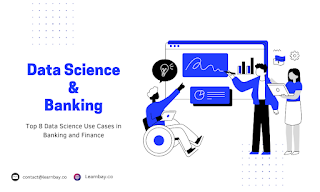Business Analytics and Data Science: A Comparison
Finding the differences between data science and data analytics may not be a specialized question reserved just for experts. The proper use of data is crucial, given that there has been a 70% rise in internet usage in the last few months. To make business decisions, industries such as banking, manufacturing, healthcare, sales, and others carefully watch data. My research indicates that there are numerous expanding prospects in these domains. Some of the technology and methods for using data more effectively and efficiently will soon be used by the general public. For several reasons, learning the distinctions between business analytics and data science is important.
Let’s discuss some of the fundamental differences between data science and business analytics and see which one is the right fit for you.
Business Analytics
What exactly is Business analytics?
Business analytics bridges the gap between information technology and business by utilizing analytics to deliver data-driven suggestions. While the analytics portion involves data, statistics, and computer science knowledge, the business component necessitates a profound understanding of business.
What is the role of a business analyst?
According to LinkedIn Talent Solutions, a business analyst is a communicator, facilitator, and mediator who looks for the best methods to enhance operations and boost effectiveness using technology, strategy, analytic solutions, and other factors.
What qualifications do business analysts need?
Here are some marketable skills of those who own Business analytics certifications.
Interpretation:
Organizations handle a lot of data. You should be able to clean up data and make it interpretable as a business analyst.
Data Visualization and storytelling:
Tableau describes data visualization as a graphical representation of data and information. Data visualization is a topic that is still developing. A business analyst offers a simple approach to recognizing and comprehending trends, outliers, and patterns in data by using visual elements like charts, graphs, and maps. With an IBM-accredited business analytics course in Bangalore, you can master these essential skills and become a certified professional.
Analytical reasoning ability:
It involves investigation, data analysis, communication, critical thinking, and logical reasoning. These are necessary for a business analyst to use descriptive, predictive, and prescriptive analytics in business settings to address business issues.
Mathematical and statistical skills:
In business analytics, the ability to gather, arrange and understand numerical data is utilized for modeling, inference, estimating, and forecasting.
Written and Communication skills:
Better communication skills make it simpler to persuade the management team to suggest changes and expand business chances.
Data Science
Data science: What is it?
Data science is the study of data utilizing technology, statistics, and algorithms. It is the process of using data to foresee outcomes and provide answers to queries.
What is the work of a data scientist?
Data scientists use machine learning algorithms to analyze data in numbers, text, photos, videos, and audio to derive diverse insights. Hugo Bowne-Anderson's article for the Harvard Business Review claims that "Data scientists lay a solid data foundation to undertake powerful analyses. Then, among other strategies, they run online trials to encourage long-term growth.
To thoroughly understand their business and consumers and to make better decisions, they eventually build machine learning pipelines and customized data products. Data science is about infrastructure, testing, machine learning, decision-making, and data products in other IT fields.
What skills do data scientists possess?
The following are the fundamental skills needed for becoming a data scientist:
Statistical analysis:
You should be knowledgeable about statistical tests, probability estimators, and anomaly identification to have a great sense of patterns.
Computer science and programming:
Data scientists encounter massive datasets. You will need to create computer programs to solve business problems. Hence, you should be knowledgeable in programming languages like Python, R, and SQL.
Machine learning:
You should know the statistical models and algorithms that allow computers to automatically learn from data if you want to be a data scientist.
Multivariable calculus and linear algebra:
For the purpose of creating a machine learning model, this profound mathematical understanding is required.
Data visualization and storytelling:
Once you have the information, you must present your conclusions. Data scientists explain and communicate meaningful insights to both technical and non-technical audiences using data visualization tools and storytelling.
Conclusion
Hopefully, you now have a clear understanding of the differences between a data scientist and a business analyst. Business analysts must engage with and handle the data as part of their job, whereas data scientists typically focus more on the production of the data. In my opinion, a business analyst is someone who gains further training and work experience and can go into a data science position. I chose to enter the field of business analytics because of its unique flexibility. Also, if you are interested in this field, I suggest you opt for a business analyst job first and then move to data scientists because of its complexity. So begin your career with a data science course in Bangalore, master the skills, and land your dream job.




Comments
Post a Comment